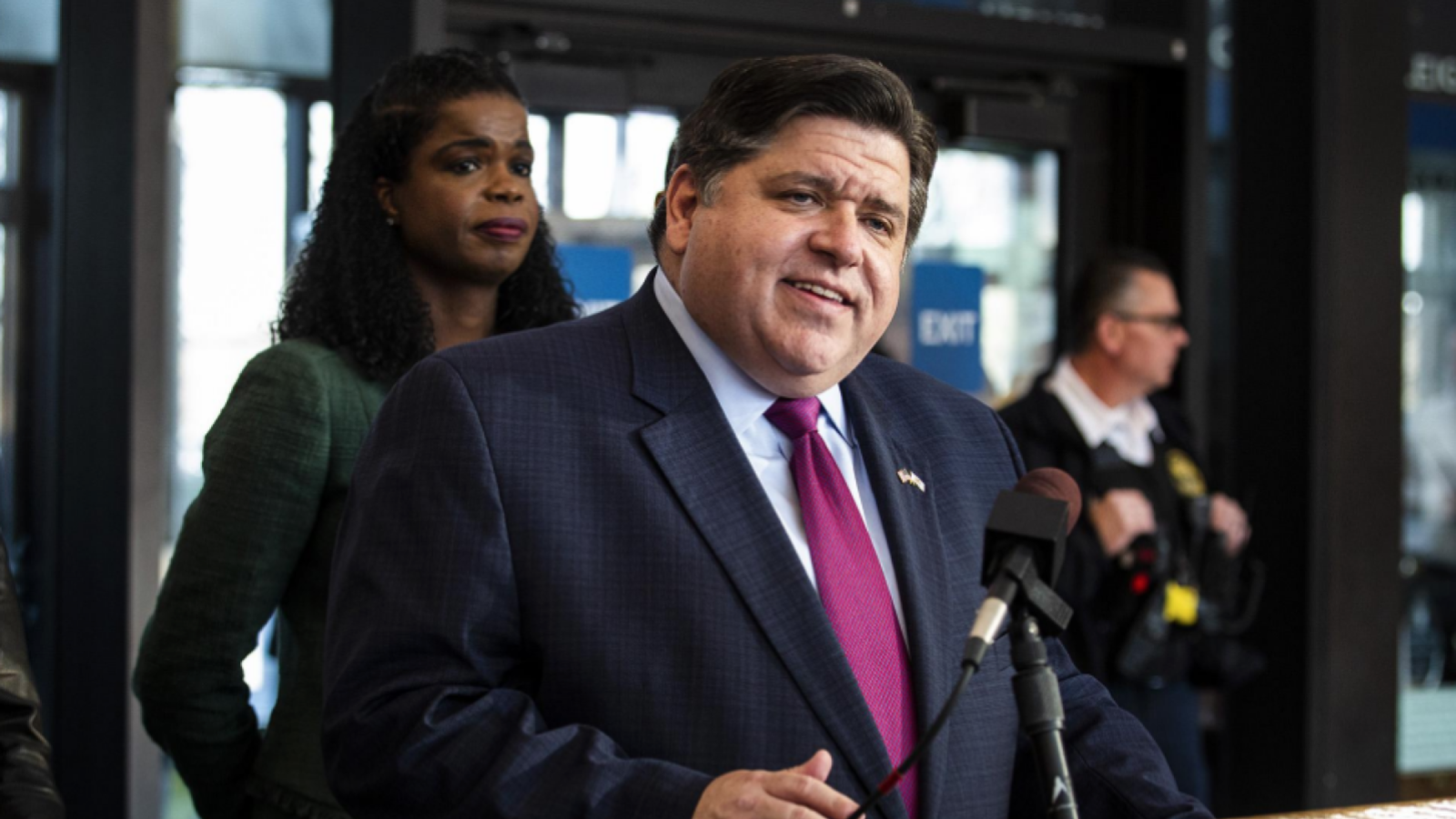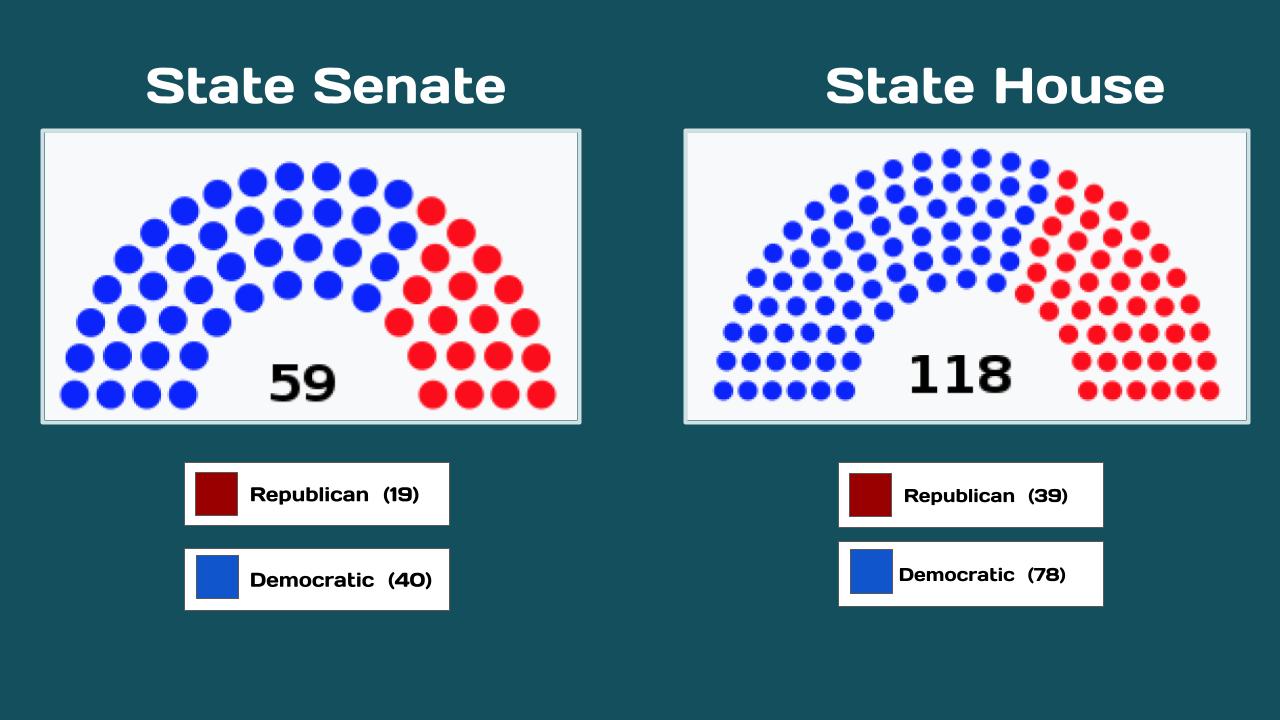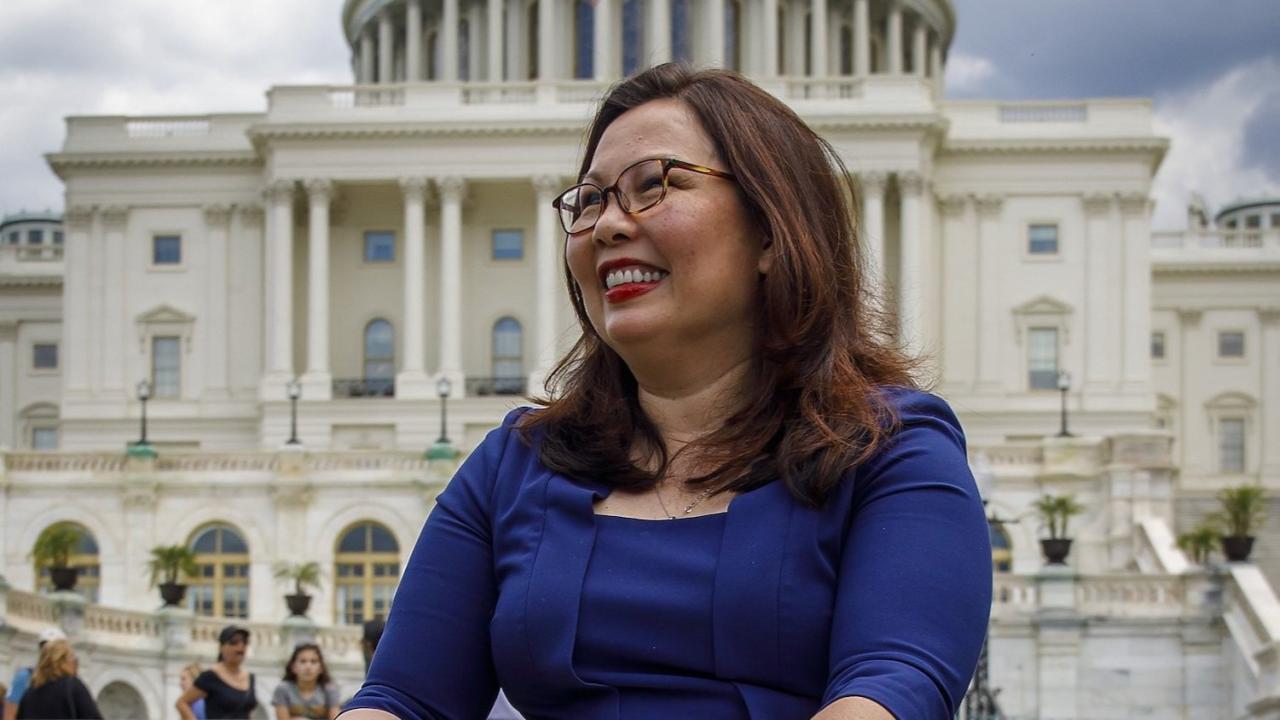Summary
Illinois is located in the Midwestern region of the USA with Springfield as its capital. J. B. Pritzker (D) is Governor.
The Illinois legislature has 59 Senate members and 118 House members.
OnAir Post: Illinois onAir
News
The base content in each post in this Illinois onAir Hub has been updated as of 12/20/23. In addition to the eight posts on the home page, in depth posts on each US House member and posts on Illinois government and elections have been started. These posts have been shared with the US onAir Hub and will updated in the US onAir automatically when they are updated in this hub.
If your university or nonpartisan organization (such as a government focused research center, citizen engagement program or a League of Women Voters chapter) is interested in assisting the US onAir network to help curate new issue posts or other posts on this Hub and moderate the forums in each post, contact Ben Murphy at Ben.Murphy@onair.cc.
We are also supporting college students to start an onAir chapter on the their campus to coordinate the curation and moderation of posts especially on state and local representatives and government.
About
The Illinois onAir Hub supports Illinoisans to become more informed about and engaged in local, state, and federal politics while facilitating more civil and positive discussions with their representatives, candidates, and fellow citizens.
- Illinois onAir is one of 50 state governance and elections hubs that the US onAir Network is providing to help reinvigorate US democracy. This post has short summaries of current state and federal representatives with links to their complete Hub posts. Students curate post content from government, campaign, social media, and public websites. Key content on the Illinois Hub is also replicated on the US onAir nations Hub at: us.onair.cc.
- Alabama students will be forming onAir chapters in their colleges and universities to help curate Hub content. As more students participate and more onAir chapters are started, we will expand to include more state and local content as well as increase the number of aircasts – student-led, livestreamed, online discussions with candidates, representatives, and the public.
Find out more about Who Represents Me inIllinois
Learn more about the US onAir Network
The base content in each post in this Wyoming onAir Hub has been updated as of 12/20/23. In addition to the eight posts on the home page, in depth posts on each US House member and posts on Wyoming government and elections have been started. These posts have been shared with the US onAir Hub and will updated in the US onAir automatically when they are updated in this hub.
If your university or nonpartisan organization (such as a government focused research center, citizen engagement program or a League of Women Voters chapter) is interested in assisting the US onAir network to help curate new issue posts or other posts on this Hub and moderate the forums in each post, contact Ben Murphy at Ben.Murphy@onair.cc.
We are also supporting college students to start an onAir chapter on the their campus to coordinate the curation and moderation of posts especially on state and local representatives and government.
Web Links
State Representatives
Governor J.B. Pritzker
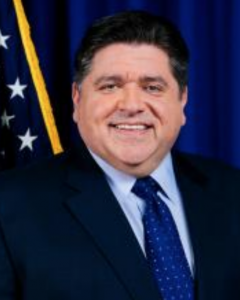 Current Position: Governor since 2019
Current Position: Governor since 2019
Affiliation: Democrat
Former Position: Business and philanthropy from 2000 – 2019
A member of the wealthy Pritzker family, which owns the worldwide hotel chain Hyatt, Pritzker is based in Chicago. He has started several venture capital and investment startups such as the Pritzker Group, where he is a managing partner.
OnAir Post: JB Pritzker – IL
US Representatives
Senator Dick Durbin
 Current Position: US Senator since 1997
Current Position: US Senator since 1997
Affiliation: Democrat
Former Position: US Representative from 1983 – 1997
Featured Quote:
This country needs a new Civilian Conservation Corps for the 21st century. We can put Americans to work, preserve our precious natural parks, and protect the environment—all at once. More about my plan with @RepBobbyRush
Senator Durbin is in his fifth Senate term and has served as the Senate Democratic whip since 2005 (the second-highest position in the Democratic leadership in the Senate) and as the Senate majority whip since 2021. He chairs the Senate Judiciary Committee,
OnAir Post: Dick Durbin – IL
Senator Tammy Duckworth
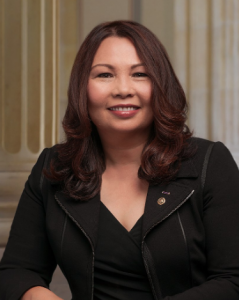 Current Position: US Senator since 2017
Current Position: US Senator since 2017
Affiliation: Democrat
Former Position: Assistant Secretary of Veterans Affairs from 2009 – 2011
Other Positions: Chair, U.S. Senate Armed Services Committee Subcommittee – Airland Subcommittee
Chair, U.S. Senate Committee on Environment & Public Works – Subcommittee on Fisheries, Water and Wildlife
A combat veteran of the Iraq War, she served as a U.S. Army helicopter pilot. In 2004, when her Black Hawk helicopter was hit by a rocket-propelled grenade fired by Iraqi insurgents, she lost both legs and some mobility in her right arm.
Duckworth served as director of the Illinois Department of Veterans Affairs from 2006 to 2009 and as assistant secretary for public and intergovernmental affairs at the United States Department of Veterans Affairs. Duckworth is the first Thai American woman elected to Congress
OnAir Post: Tammy Duckworth – IL
Jonathan Jackson IL-01
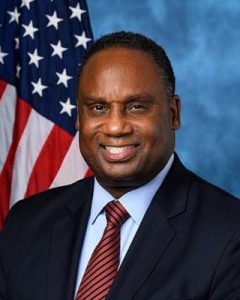 Current Position: US Representative of IL District 1 since 2023
Current Position: US Representative of IL District 1 since 2023
Affiliation: Democrat
District: Based in Cook County, the district includes much of the South Side of Chicago, and continues southwest to Joliet.
Upcoming Election:
Jonathan Luther Jackson is an American businessman and activist who was previously the national spokesman for the Rainbow/PUSH Coalition, a financial analyst, and a partner in the Chicago-based beer distributorship River North Sales and Service.
Jackson was born in Chicago, to Jesse Jackson, a noted civil rights activist and Baptist minister, and Jacqueline Lavinia Jackson. His godfather was Martin Luther King Jr., from whom Jackson gets his middle name
OnAir Post: Jonathan Jackson IL-01
Robin Kelly IL-02
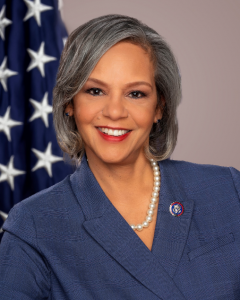 Current Position: US Representative of IL District 2 since 2013
Current Position: US Representative of IL District 2 since 2013
Affiliation: Democrat
Other Positions: House Committee on Energy and Commerce
District: Based in the south suburbs of Chicago, the district includes southern Cook county, eastern Will county, and Kankakee county, as well as the city of Chicago’s far southeast side.
Upcoming Election:
Kelly served in the Illinois House of Representatives from 2003 to 2007. She then served as chief of staff for Illinois State Treasurer Alexi Giannoulias until 2010. Kelly earned her Ph.D. in political science from Northern Illinois University in 2004.
Featured Quote:
Nearly 37 million Medicare beneficiaries can’t access affordable dental care, putting them at risk for preventable health issues. @RepHorsford & I introduced the Medicare Dental Coverage Act to add dental coverage to Medicare & help keep people healthy.
Featured Video:
Rep. Robin Kelly On Sondland, Ukraine, Impeachment | Velshi & Ruhle | MSNBC
OnAir Post: Robin Kelly IL-02
Delia Ramirez IL-03
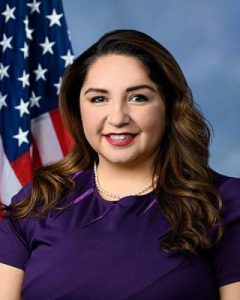 Current Position: US Representative of IL District 3 since 2023
Current Position: US Representative of IL District 3 since 2023
Affiliation: Democrat
Former Position: Illinois House of Representatives for the 4th district from 2018 to 2023.
District: western and southwestern suburbs of Chicago as far as the DuPage County border, as well as portions of the Southwest Side of the city of Chicago itself,
Upcoming Election:
Delia Ramirez served as a member of the Illinois House of Representatives for the 4th district from 2018 to 2023. She was the first Guatemalan American elected to the Illinois General Assembly. Before entering elected office, Ramirez worked and held leadership roles in social service agencies, nonprofit advocacy organizations, and local community organizations.
OnAir Post: Delia Ramirez IL-03
Jesús “Chuy” García IL-04
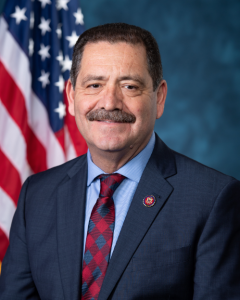 Current Position: US Representative of IL District 4 since 2019
Current Position: US Representative of IL District 4 since 2019
Affiliation: Democrat
Former Positions: Cook County Board of Commissioners from 2011 – 2018; State Senator from 1993 – 1999; Chicago City Council from 1986 – 1993
Other Positions: House Committee on Natural Resources
District: east–west across the city of Chicago, on the west side continuing into smaller portions of some suburban areas in Cook County, surrounding Illinois’s 7th congressional district.
Upcoming Election
Featured Quote:
I joined organizations and progressive colleagues in DC to uplift your voices and say ‘We can’t wait and we won’t wait!’ An infrastructure deal without climate, citizenship, healthcare, and good jobs is NO DEAL! We need bold solutions – the millions counting on us cannot wait!
García was first elected to the Chicago City Council in 1986. During his time on the city council, he was known for being a staunch ally of Mayor Harold Washington.[3] In 1992, he became the first Mexican-American member of the Illinois State Senate.
OnAir Post: Jesús “Chuy” García IL-04
Mike Quigley IL-05
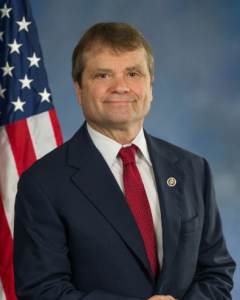 Current Position: US Representative of IL District 5 since 2009
Current Position: US Representative of IL District 5 since 2009
Affiliation: Democrat
District: parts of Cook and Lake counties. All or parts of Chicago, Inverness, Arlington Heights, Barrington Hills, Des Plaines, Palatine, Mount Prospect, Deer Park, Kildeer, Lake Zurich, Long Grove, and North Barrington are included.
Upcoming Election:
Featured Quote:
Equal access to abortion care—everywhere—is essential to social and economic participation, reproductive autonomy and the right for women to determine their own lives. That’s why I’m voting for #WHPA on the House floor today. Sept. 24, 2021
Quigley is a former member of the Cook County Board of Commissioners, where he represented Chicago’s northside neighborhoods of Lakeview, Uptown, and Rogers Park. He previously taught environmental policy and Chicago politics as an adjunct professor at Loyola University Chicago.
OnAir Post: Mike Quigley IL-05
Sean Casten IL-06
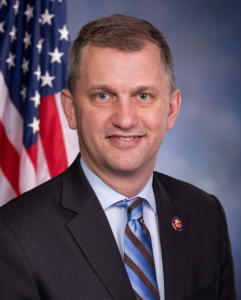 Current Position: US Representative of IL District 6 since 2019
Current Position: US Representative of IL District 6 since 2019
Affiliation: Democrat
Former Position: Renewable Energy Consultant from 1999 – 2019
District: arts of Cook and DuPage counties
Upcoming Election:
Featured Quote:
You know the guy in your office who always misses deadlines and does shoddy work but when you press him he tells you how many hours he’s put in and wants to talk to you about how important it is he sticks to his process? That’s the US Senate.
Casten began his career working at consultancy Arthur D. Little, where he did fuel chain analyses for the company’s chemical engineering group. From 2000 to 2007, he served as the president and CEO of Turbosteam Corporation, which converted emissions from power plants into energy. Casten was a founding chairman of the Northeast CHP Initiative.He participated in crafting the bill that became the Regional Greenhouse Gas Initiative (RGGI), a program in the northeast United States that attempts to use market forces to reduce greenhouse gas emissions.
OnAir Post: Sean Casten IL-06
Danny K. Davis IL-07
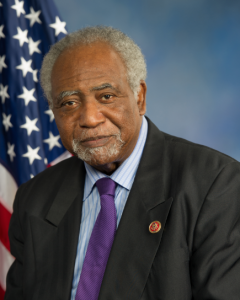 Current Position: US Representative of IL District 7 since 1997
Current Position: US Representative of IL District 7 since 1997
Affiliation: Democrat
Former Positions: Cook County Board of Commissioners from 1990 – 1997; Member of the Chicago City Council from 1979 – 1990
Other Positions: Regional Whip, House of Representatives
District: parts of Cook County. All or parts of Broadview, Bellwood, Chicago, Forest Park, Hillside, Oak Park, La Grange Park, Maywood, and Westchester
Upcoming Election:
Featured Quote:
Given the VAST amount of information pubically available on the extensive damage from the Jan 6th events – I can’t tell if you are trolling or pitifully trolling.
Davis worked as a government clerk, a high school teacher, executive director of the Greater Lawndale Conservation Commission, director of training at the Martin L. King Neighborhood Health Center, and executive director of the Westside Health Center before entering politics. He represented Chicago’s 29th Ward on the Chicago City Council from 1979 to 1990
OnAir Post: Danny K. Davis IL-07
Raja Krishnamoorthi IL-08
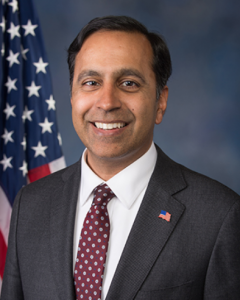 Current Position: US Representative of IL District 8 since 2017
Current Position: US Representative of IL District 8 since 2017
Affiliation: Democrat
Former Position: Lawyer and Tech entrepreneur from 1988 – 2017
Other Positions: Co-Founder, Middle Class Jobs Caucus
Co-chair, Immigration Task Force of the Congressional Asian Pacific American Caucus
Krishnamoorthi is the first ever Indian-American or person of South Asian descent to serve as Ranking Member or Chair of any full committee in the U.S. Congress. He also serves as an assistant whip. During law school, Krishnamoorthi was managing editor of the Harvard Civil Rights and Civil Liberties Law Review, and published a law review article on the implementation of Local School Councils in Chicago public elementary schools.
Featured Quote:
“I am honoured to be appointed as a co-chair of the CAPAC Immigration Task Force alongside co-chair Representative Pramila Jayapal as we continue to fight to ensure our immigration system reflects American values.”
OnAir Post: Raja Krishnamoorthi IL-08
Jan Schakowsky IL-09
 Current Position: US Representative of IL District 9 since 1999
Current Position: US Representative of IL District 9 since 1999
Affiliation: Democrat
Former Position: Program Director for PIRGs from 1976 – 1990
Other Positions: Senior Chief Deputy Whip, House of Representatives,
House Energy & Commerce Committee, Consumer Protection and Commerce Subcommittee
District: anchored in Chicago’s North Side, along Lake Michigan, and covers many of Chicago’s northern suburbs.
Upcoming Election:
Schakowsky was Program Director of Illinois Public Action, Illinois’s largest public interest group, from 1976 to 1985. She then moved to the Illinois State Council of Senior Citizens as executive director until 1990, when she was elected to the Illinois House of Representatives, representing the fourth district.
Featured Quote:
Starting today, #ChildTaxCredit payments will begin hitting bank accounts and mailboxes of millions of American families. With the American Rescue Plan, we’re delivering one of the most significant reductions in child poverty ever. Learn more
OnAir Post: Jan Schakowsky IL-09
Brad Schneider IL-10
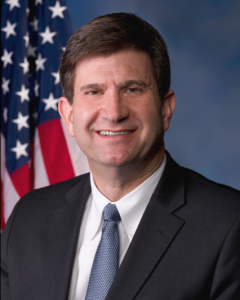 Current Position: US Representative of IL District 10 since 2017
Current Position: US Representative of IL District 10 since 2017
Affiliation: Democrat
Former Position: Financial consultant from 1988 – 2017
District: northeast corner of the state and mostly comprises northern suburbs of Chicago.
Upcoming Election:
Schneider worked as the managing principal of the life insurance firm Davis Dann Adler Schneider, LLC, from 1997 until 2003, when he became the director of the strategic services group at Blackman Kallick. In 2008, he started his own consulting company, Cadence Consulting Group.
Featured Quote:
@AlinejadMasih is an Iranian immigrant, an American citizen and champion of human and civil rights. The Iranian regime fears her message. I was honored that she shared with me the stories of countless Iranians risking their lives for freedom. She speaks because they cannot.
OnAir Post: Brad Schneider IL-10
Bill Foster IL-11
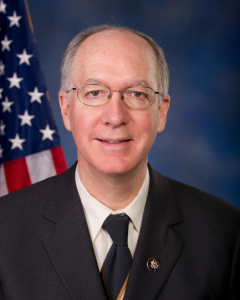 Current Position: US Representative of IL District 11 since 2013
Current Position: US Representative of IL District 11 since 2013
Affiliation: Democrat
Other Positions:Committee on Financial Services, Task Force on Artificial Intelligence,
Committee on Science, Space, and Technology, Subcommittee on Investigations and Oversight
District: Northern Illinois region, encompassing most of McHenry and Kane Counties, parts of Boone, Lake, DeKalb, DuPage, Cook, and Will Counties.
Upcoming Election:
George William Foster is a physicist. After completing his Ph.D., Foster moved to the Fox Valley with his family to pursue a career in high-energy (particle) physics at Fermilab, a Department of Energy National Laboratory. Foster was elected a fellow of the American Physical Society. He was a member of the team that received the 1989 Bruno Rossi Prize for cosmic ray physics for the discovery of the neutrino burst from the supernova SN 1987A.
Featured Quote:
Getting vaccinated is not a partisan act, it’s a patriotic one. I’m proud to join @RepMMM
for a bipartisan call to all Americans: protect yourselves and your loved ones & get vaccinated.
OnAir Post: Bill Foster IL-11
Mike Bost IL-12
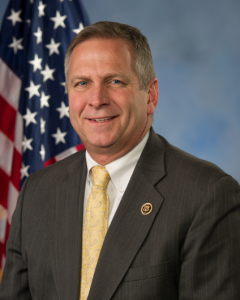 Current Position: US Representative of IL District 12 since 2015
Current Position: US Representative of IL District 12 since 2015
Affiliation: Republican
Former Position: State Delegate from 1995 – 2015
District: the entirety of Southern Illinois, spanning the Illinois-Missouri-Kentucky-Indiana border.
Upcoming Election:
Before holding elected office, he was a firefighter. Bost ran his family’s trucking business for ten years. Since 1989, he and his wife Tracy have owned and operated White House Salon in Murphysboro.
Featured Quote:
“I am a true believer that local control is better. I believe that our school boards should be able to make decisions on their own. I am not a big government person, and the only concern I have is that the fact is, the governor is taking a very strong step for local control,” Bost said.
OnAir Post: Mike Bost IL-12
Nikki Budzinski IL-13
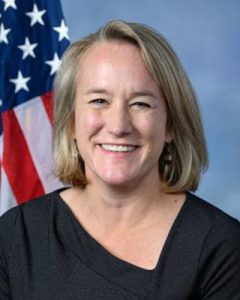 Current Position: US Representative for District 13 since 2023
Current Position: US Representative for District 13 since 2023
Affiliation: Democrat
District: Champaign, Urbana, most of Decatur and Springfield, and most of the Metro East of St. Louis
Upcoming Election:
Nikki Budzinski (born 1976/1977) is an American politician and labor union leader. In 2021, Budzinski served as the Chief of Staff to the Director of the Office of Management and Budget (OMB) in the Biden administration.
She is currently the Democratic nominee for Illinois’ 13th congressional district.
OnAir Post: Nikki Budzinski IL-13
Lauren Underwood IL-14
 Current Position: US Representative of IL District 14 since 2019
Current Position: US Representative of IL District 14 since 2019
Affiliation: Democrat
Other Positions: Committee on Homeland Security
Subcommittee on Cybersecurity, Infrastructure Protection and Innovation
District: northern Illinois, surrounding the outer northern and western suburbs of Chicago.
Upcoming Election:
She graduated with a degree in nursing from the University of Michigan and two master’s degrees from Johns Hopkins University. She began her career as a policy professional in the Obama administration in 2014, later working as a senior advisor at the Department of Health and Human Services (HHS).
Featured Quote:
The American Families Plan is historic. We can make sure kids in our communities have access to more education — starting with pre-K all the way up to community college!
OnAir Post: Lauren Underwood IL-14
Mary Miller IL-15
 Current Position: US Representative of IL 15th District since 2021
Current Position: US Representative of IL 15th District since 2021
Affiliation: Republican
District: encompassing the majority of Central Illinois.
Upcoming Election:
Miller is a member of the Freedom Caucus and has been described as on the “far right” of the Republican Party. Miller is married to state representative Chris Miller, who represents much of the eastern portion of his wife’s district. They own a farm in Oakland, near Charleston, where they grow grain and raise cattle. They have seven children and 17 grandchildren.
Featured Quote:
I will not sit on the sidelines and watch our Constitution be trampled on. We are not descendants of the fearful.
OnAir Post: Mary Miller IL-15
Darin LaHood IL-16
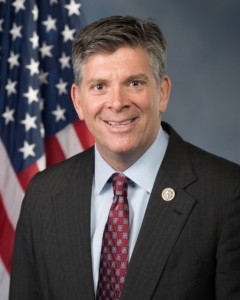 Current Position: US Representative of IL District 16 since 2023
Current Position: US Representative of IL District 16 since 2023
Affiliation: Republican
Former Position: US Representative of IL District 16 from 2015-2022; State Senator from 2011 – 2015
District: southwestern exurbs of the Chicago metropolitan area, and stretches from the Wisconsin border to the Indiana border
Upcoming Election:
He has called himself a fiscal conservative focused on budget issues. LaHood was a prosecutor in the Tazewell County state’s attorney’s office and the United States Attorney’s Office for the District of Nevada in Las Vegas. On returning to Peoria in 2005, he took up private law practice;
Featured Quote:
My bipartisan Small Business Tax Fairness and Compliance Simplification Act would provide equitable treatment to the beauty/salon/barber industry, allow these businesses to further support their employees, and promote small business expansion.
OnAir Post: Darin LaHood IL-16
Eric Sorensen IL-17
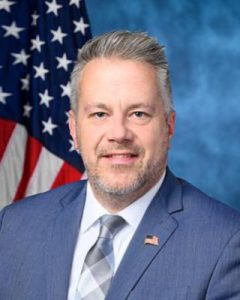 Current Position: US House of Representatives for District 17 since 2023
Current Position: US House of Representatives for District 17 since 2023
Affiliation: Democrat
Former Positions: Meteorologist and Communications Manager
District: Includes most of the northwestern portion of the state, with most of its population living on the Illinois side of the Quad Cities, as well as parts of Peoria and Rockford
Upcoming Election:
He studied communications and meteorology at Northern Illinois University. Sorensen began his career as a meteorologist. He worked as chief meteorologist for WREX, Rockford’s NBC affiliate, from 2003 to 2014, before becoming the senior meteorologist for WQAD, the ABC affiliate of Moline, Illinois. Sorensen became a fellow of the Society for Environmental Journalists in 2018.
OnAir Post: Eric Sorensen IL-17
More Information
Wikipedia
Contents
The Government of Illinois, under the State of Illinois Constitution, has three branches of government: Executive, Legislative, and Judicial. The State’s executive branch is split into several statewide elected offices, with the Governor as chief executive and head of state, and has numerous departments, agencies, boards and commissions. Legislative functions are granted to the General Assembly, a bicameral body consisting of the 118-member House of Representatives and the 59-member Senate. The judiciary is composed of the Supreme Court of Illinois and lower courts.
Executive
The executive branch is composed of six elected officers and their offices, as well as numerous other departments.[1] Illinois is one of 26 states that elect their governor on the same ticket as their lieutenant governor.[2] The six elected officers are:
Departments
The government of Illinois has numerous departments, agencies, boards and commissions; however, the code departments, so called because they are established by the Civil Administrative Code of Illinois, provide most of the state’s services:[1][3]
- Department on Aging
- Department of Agriculture
- Department of Central Management Services
- Department of Children and Family Services
The James R. Thompson Center in the Loop - Department of Commerce and Economic Opportunity
- Department of Corrections
- Emergency Management Agency
- Department of Employment Security
- Department of Financial and Professional Regulation
- Department of Healthcare and Family Services
- Department of Human Rights
- Department of Human Services
- Department of Juvenile Justice
- Department of Labor
- Department of the Lottery
- Department of Natural Resources
- Department of Public Health
- Department of Revenue
- Department of State Police
- Department of Transportation
- Department of Veterans’ Affairs
Former Lt. Governor and Attorney General Neil Hartigan currently serves as General Counsel to The Governor of Illinois (J.B. Pritzker). Regulations are codified in the Illinois Administrative Code.[4] The Illinois Register is the weekly publication containing proposed and adopted rules.[4]
Legislature

The Illinois General Assembly is the state legislature, composed of the 118-member Illinois House of Representatives and the 59-member Illinois Senate. Representatives elect from their chamber a Speaker and Speaker pro tempore, and senators elect from the chamber a President of the Senate.
The Governor has different types of vetoes, such as a full veto, reduction veto, and an amendatory veto, but the General Assembly has the power to override gubernatorial vetoes through a three-fifths majority vote of each chamber. The General Assembly’s session laws are published in the official Laws of Illinois.[5][6] The Illinois Compiled Statutes (ILCS) are the codified statutes of a general and permanent nature.[4][6]
Judiciary

The Supreme Court has limited original jurisdiction and has final appellate jurisdiction. It has mandatory jurisdiction in capital cases and cases where the constitutionality of laws has been called into question, and has discretionary jurisdiction from the Appellate Court. The Appellate Court is the court of first appeal for civil and criminal cases rising in the Illinois circuit courts.
The circuit courts are trial courts of original jurisdiction. There are 25 judicial circuits in the state (24 numbered circuits and one for Cook County), each comprising one or more of Illinois’ 102 counties.[7] The circuit court has general jurisdiction and can decide, with few exceptions, any kind of case.
Capital

Springfield is the state capital. Many state offices are in Springfield, and it is the regular meeting place of the Illinois General Assembly.[8] All officers chosen in statewide elections are required to have at least one residence in Springfield, funded by the state government.[9]
Cabinet officers and constitutional officers conduct much of their business at state offices in Chicago. In 2012, St. Louis Post-Dispatch columnist Pat Gauen argued that “in the reality of Illinois politics, [Springfield] shares de facto capital status with Chicago.”[8] According to Gauen, “Everybody who’s anybody in Illinois government has an office in Chicago.”[8] University of Illinois researcher and former member of the Illinois legislature Jim Nowlan stated “It’s almost like Chicago is becoming the shadow capital of Illinois” and that “Springfield is almost become a hinterland outpost.”[9] A former director of the Southern Illinois University Paul Simon Institute for Public Affairs, Mike Lawrence, criticized state officials for spending so little time in Springfield since it estranged them from and devalued Illinois state employees in that city.[9]
In 2007, Illinois state representative Raymond Poe sponsored House Bill 1959, which proposed ending state financing for officers’ travel to Springfield. “The state capital is Springfield, and that should be their work location,” said Poe. [10]
Local government

The administrative divisions of Illinois are the counties, townships, precincts, cities, towns, villages, and special-purpose districts.[11] Illinois has more units of local government than any other state—over 8,000 in all. The basic subdivision of Illinois are the 102 counties.[12] 85 of the 102 counties are in turn divided into 1,432 townships.[12] Municipal governments are the cities, villages, and incorporated towns.[12] Some localities possess “home rule“, which allows them to govern themselves to a certain extent.[13] Illinois counties, townships, cities, and villages may promulgate local ordinances.[14] Illinois also has several types of school districts (including the Chicago Public Schools and the Illinois Community College System) and additional units of government that oversee many other functions.
See also
- Elections in Illinois
- Illinois Budget Impasse
- Law enforcement in Illinois
- Law of Illinois
- Politics of Illinois
References
- ^ a b Uphoff, Judy Lee (2012). “The Governor and the Executive Branch”. In Lind, Nancy S.; Rankin, Erik (eds.). Governing Illinois: Your Connection to State and Local Government (PDF) (4th ed.). Center Publications, Center for State Policy and Leadership, University of Illinois Springfield. pp. 77–79. ISBN 978-0-938943-28-0. Archived from the original (PDF) on 2013-06-22. Retrieved 2013-11-30.
- ^ “Methods of Election | National Lieutenant Governors Association (NLGA)”. Retrieved 2019-01-15.
- ^ 20 ILCS 5
- ^ a b c Smith, Lori L.; Barkley, Daniel C.; Cornwall, Daniel C.; Johnson, Eric W.; Malcomb, J. Louise (2003). Tapping State Government Information Sources. Greenwood Publishing Group. p. 126. ISBN 1-57356-387-0. LCCN 2002044846.
- ^ “Illinois Legal Research Guide”. University of Chicago Library. Retrieved 5 September 2013.
- ^ a b Decker, John F.; Kopacz, Christopher (2012). Illinois Criminal Law: A Survey of Crimes and Defenses (5th ed.). LexisNexis. § 1.01. ISBN 978-0-7698-5284-3.
- ^ Wojcik, Mark E. (2003). Illinois Legal Research. Carolina Academic Press. p. 38. ISBN 0-89089-339-X. LCCN 2003110318. OCLC 52972867.
- ^ a b c d Gauen, Pat. “Illinois corruption explained: the capital is too far from Chicago ” (Archive). St. Louis Post-Dispatch. Retrieved on May 26, 2016.
- ^ a b c Reeder, Scott. “What does it cost taxpayers to pay for lawmakers’ empty Springfield residences?” (Archive). Illinois News Network. September 11, 2014. Retrieved on May 26, 2016.
- ^ “Committee votes to cut off funds for agency chiefs traveling here / Poe says capital is where they’re supposed to be” Archived 2016-08-09 at the Wayback Machine. The State Journal-Register. March 15, 2007. Retrieved on May 26, 2016. Available on NewsBank, accessible from the newspaper archives.
- ^ Individual State Descriptions: 2007 (PDF), 2007 Census of Governments, United States Census Bureau, November 2012, pp. 89–97
- ^ a b c Census 2007, p. 89.
- ^ Gove, Samuel Kimball (1996). Illinois Politics and Government: The Expanding Metropolitan Frontier. Politics and Governments of the American States. University of Nebraska Press. pp. 155–156. ISBN 0-8032-7014-3. LCCN 95-46017.
- ^ Gaylord, Tom (March 2007). “Finding Illinois Municipal Ordinances Online”. Illinois Bar Journal. 95 (3): 156.
External links
- Official website
- Illinois Data Portal
- State of Illinois recipient profile on USAspending.gov

